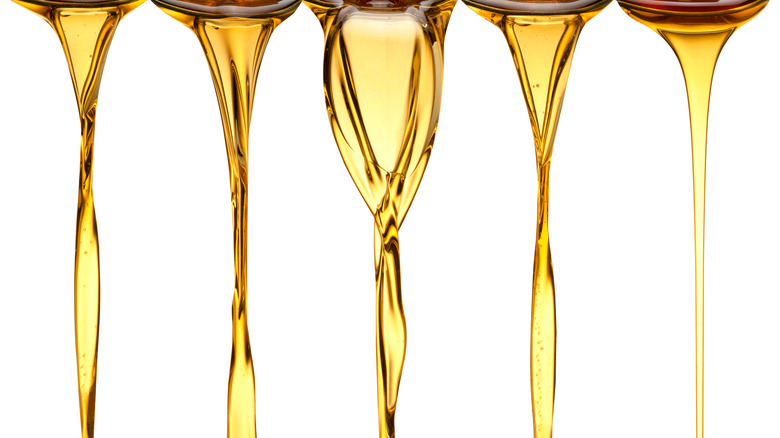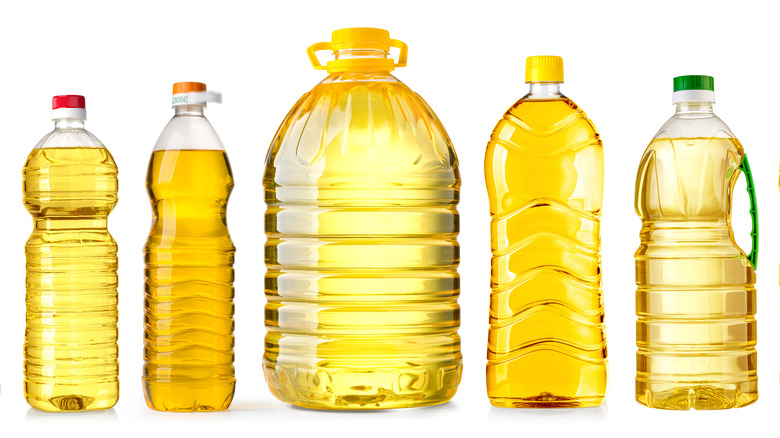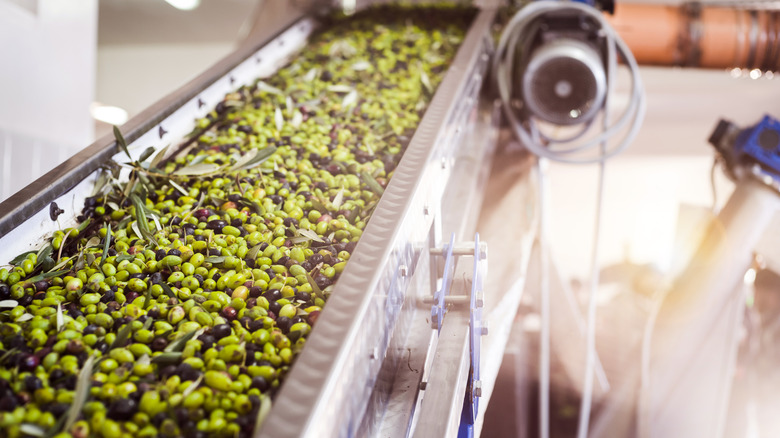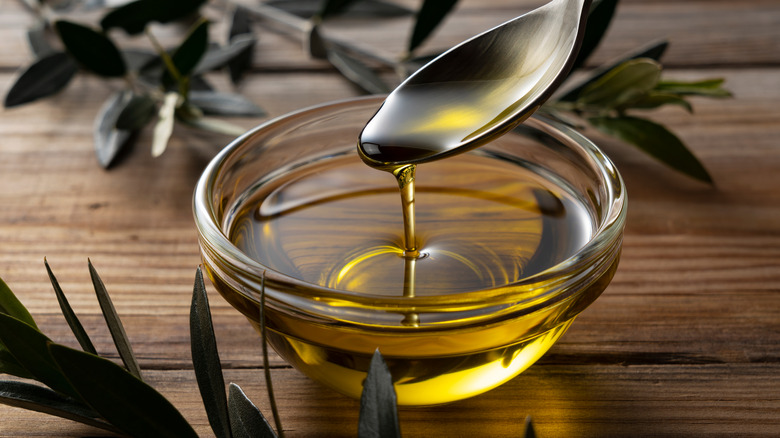Extracted Oil Vs Pressed Oil: What's The Difference?
Walk down any grocery store oil aisle, and the options are not only plentiful, but they're also downright confusing. Pressed, refined, unrefined, virgin, extra-virgin, expeller-pressed, cold-pressed ... and on and on (via PCC markets). Some oils are in clear plastic bottles, others in dark glass. Some oils are translucent, and others are a deep, rich, sometimes cloudy color. What do they all mean, and do they matter? Well, yes. Those myriad labels are all about how the oil is made — and that process can affect everything from the taste to its color to the nutritional value of the oil (via Olive Oil Source).
According to Brittanica, there are a small number of methods for turning a plant into edible oil. Whether the oil is derived from the seed, germ, or fruit, the approach is one of only two processes — chemically extracted with a solvent or physically pressed out.
So what exactly is the biggest difference between these two extraction methods, and do they provide different results?
Chemically extracted
In order to chemically extract oil from a vegetable, seed, or nut, a solvent is required. First, the seed is ground and then washed (usually in hexane) to draw out a yield of over 95% oil (via KMEC Engineering). This oil and solvent solution is then heated to over 200 degrees F to remove the solvent. Typically, pre-pressing is used before chemical extraction to withdraw as much oil as possible.
Chemically extracting oil is less expensive, quicker, and requires less labor — making it the preferred method and standard in the commercial production of edible vegetable oils.
That's the good side. The bad side is that it is impossible to confirm that no residual solvent has been left over in the oil. Even just minor remnants of hexane or other chemicals have been linked to health issues, per the EPA. Hexane can also become an environmental pollutant if it escapes during the oil extraction procedure (via AOCS Lipid Library).
Mechanically pressed
Pressing is historically the most traditional way to extract oil from a plant (via Dawn). It's exactly as it sounds — you press the seed, germ, or fruit to release oil. There are two methods of pressing oil — cold-pressed and hot-pressed.
The more common name for the heated option is expeller-pressed oil. The oil is extracted using a press that pushes the crop through a cavity. No direct heat is added, as it often is with extracted oil. However, the process uses friction, which creates heat up to 210 degrees Fahrenheit, as well as pressure (via Good Nature).
Cold-pressing involves no chemicals and limits heat to about 120 F. It is a simple process that results in a pretty clean oil that retains a lot of flavor. The seeds are placed in a machine and then pressed and crushed. The process is similar to expeller pressing, but in this method, the temperature is controlled. Cold-pressing is the least efficient method, and cold-pressed oils tend to be more expensive (via Shay and Company).
Preference for pressing
According to Good Nature, the lower the oil temperature when processed, the more antioxidants are retained. Not only are pressed oils free of hexane or any other potentially harmful chemical solvents, but the lack of direct, high heat and the natural extraction process help retain nutrients. Refining oil destroys nutrients like vitamin E and beta-carotene (via Elephant Plate).
Cold-pressing, in particular, retains antioxidants that high heat destroys (via Pristine Organics). Cold-pressed oils are also great sources of heart-healthy omega-3 and omega-6 fatty acids. They contain zinc, vitamins, and bioflavonoids and have higher antioxidants in addition to being free of any potentially harmful chemicals, thanks to the expression process.
Extracted oil is also commonly exposed to a refinement process that includes bleaching and deodorizing. While this process removes color and odor, it also removes nutrients as the less processing an oil undergoes, the less are lost, per Centra Foods.



